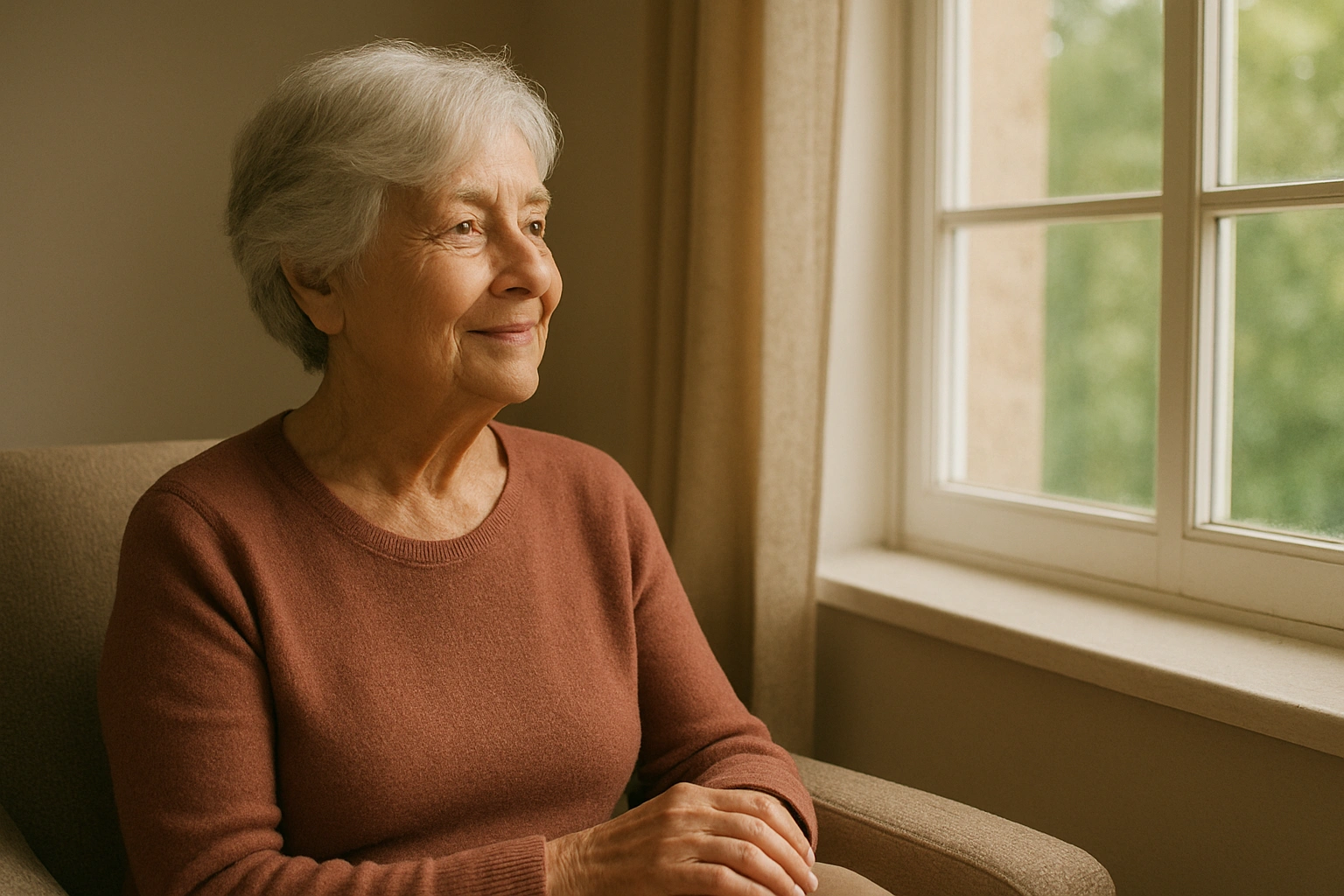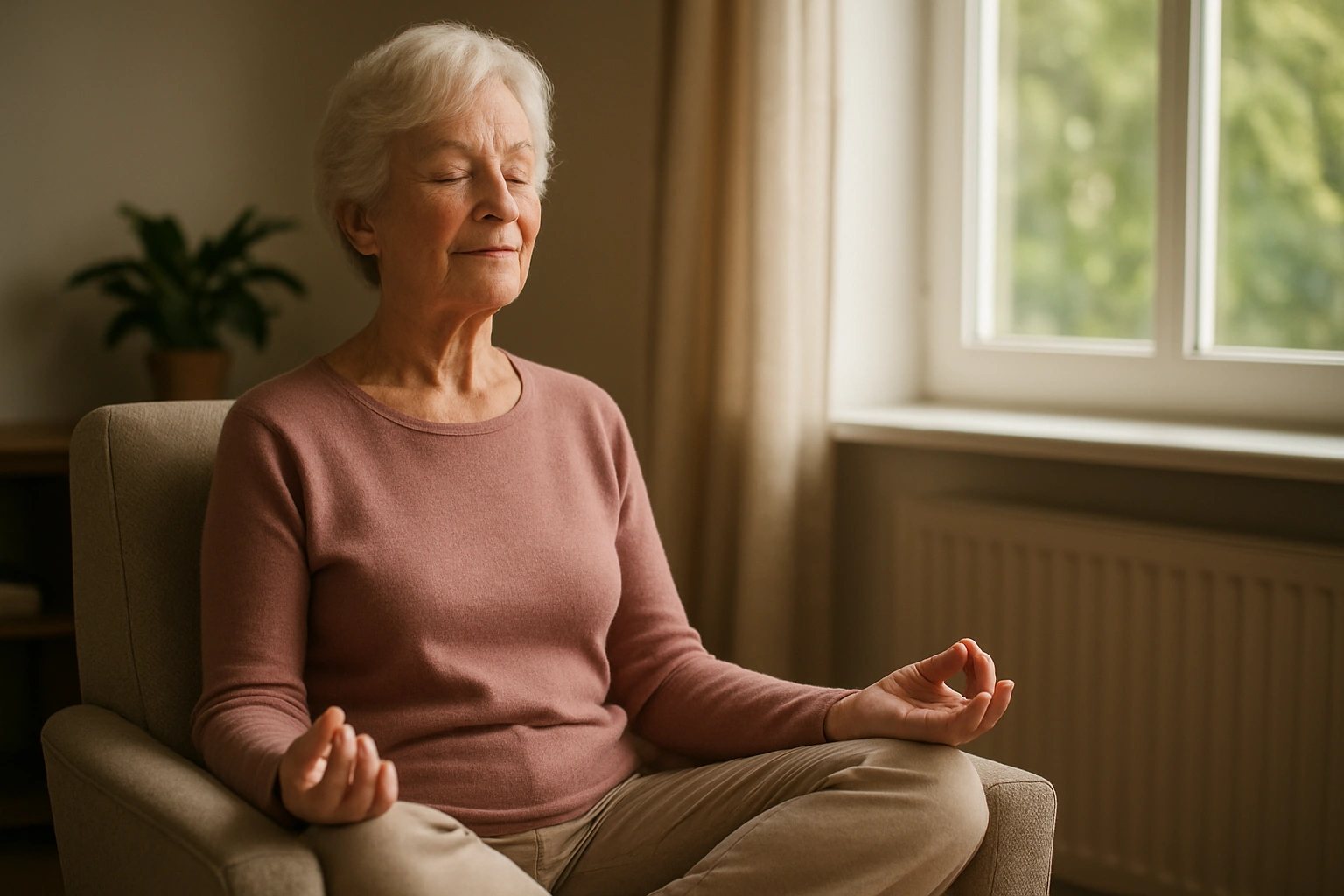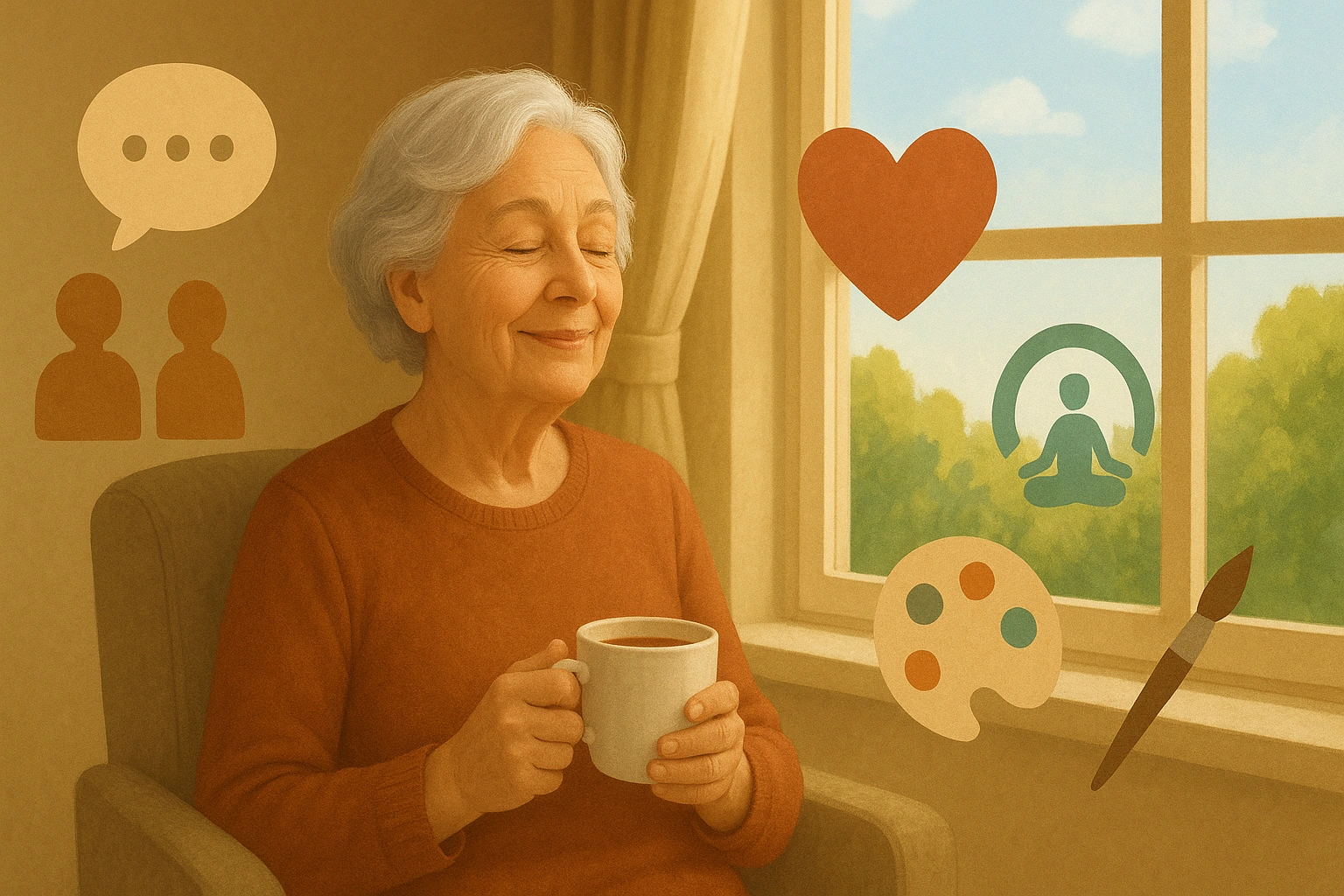
What is Elderly Emotional Wellness?
Elderly emotional wellness isn’t about feeling happy all the time. It’s about having the resilience to navigate the ups and downs of life, maintaining a sense of purpose, and fostering meaningful connections. It’s the ability to manage stress, cope with loss, and feel a genuine sense of contentment and belonging, even during quiet moments alone.
In 2025, the conversation around senior mental health has rightfully moved to the forefront of healthcare. It’s now understood that emotional well-being is inextricably linked to physical health. As the World Health Organization notes, mental health conditions in older adults are often under-diagnosed and under-treated. The focus today is on proactive strategies that support elderly emotional wellness as a core component of healthy aging.
Why Prioritizing Mental Health is Non-Negotiable
Making a conscious effort to nurture your mental state is a profound act of self-care with far-reaching benefits. It’s the foundation upon which a vibrant, independent life is built.
Combating the Health Risks of Loneliness
Chronic loneliness doesn’t just feel bad; it’s physically harmful. It’s linked to an increased risk of high blood pressure, heart disease, obesity, a weakened immune system, and cognitive decline. Actively fostering social connections is a powerful preventative medicine.
Boosting Cognitive Resilience
An engaged and active mind is a healthier mind. Mental stimulation and social interaction help build cognitive reserve, which can make the brain more resilient to age-related changes and pathologies like dementia. Keeping your brain active is like taking it to the gym.
Enhancing Physical Health Outcomes
The mind-body connection is powerful. Positive mental health is associated with better immune function, lower stress hormones like cortisol, and a greater motivation to engage in healthy behaviors like exercise and balanced eating. When you feel good emotionally, you’re more likely to take care of yourself physically.
Fostering a Strong Sense of Purpose
Having a reason to get up in the morning is a cornerstone of mental wellness. Whether it’s caring for a pet, volunteering, learning a new skill, or connecting with family, a sense of purpose provides structure, meaning, and a vital buffer against feelings of aimlessness. Staying engaged with life, as discussed on platforms like peternakan.web.id, is key to a fulfilling life.
Actionable Strategies for a Healthy Mind

1. Establish a Gentle Daily Routine
A routine provides structure and predictability, which can be very comforting. This doesn’t need to be rigid. It can be as simple as waking up at the same time, enjoying a morning cup of tea by a window, having a set time for a daily walk, and a relaxing activity before bed.
2. Proactively Nurture Social Connections
Don’t wait for others to call you. Schedule regular phone or video calls with family and friends. Join a local club, a senior center, or a faith-based group. Even brief, friendly interactions, like chatting with a cashier, can lift your spirits.
3. Keep Your Mind Engaged and Curious
Lifelong learning is fantastic for brain health. Read books, do puzzles, listen to podcasts, or take an online course on a topic that interests you. Challenging your brain builds new neural pathways and keeps your mind sharp.
4. Embrace Mindfulness and Gratitude
Mindfulness is the practice of being present in the moment without judgment. It can be as simple as savoring your morning coffee. Gratitude involves intentionally focusing on the good things in your life. Try ending each day by thinking of three things you’re grateful for.
5. Move Your Body Gently, Every Day
Physical activity is a potent antidepressant. A daily walk, chair yoga, or gardening can significantly boost your mood by releasing endorphins. The goal is consistent, gentle movement, not strenuous workouts.
Putting It All Together: A Real-Life Scenario
Consider Eleanor, an 82-year-old widow. After her husband passed, the silence in her home felt overwhelming. Following these mental health tips seniors can use, she started small. She adopted a cat from a local shelter, giving her a companion and a routine. She scheduled a weekly video call with her grandchildren and joined an online book club. She also started a small container garden on her patio. These simple steps didn’t erase her grief, but they filled her days with purpose, connection, and life, transforming her experience of living alone.
Comparing Ways to Stay Socially Connected
Finding the right social outlets is key. Here’s a comparison of different approaches to combat loneliness.
| Method | Pros | Cons | Best For |
|---|---|---|---|
| Local Senior Center | In-person interaction, structured activities, meals | Requires transportation, fixed schedules | Seniors who are mobile and enjoy group settings |
| Online Communities | Accessible from home, wide range of interests | Lacks physical presence, requires tech comfort | Those with mobility issues or niche hobbies |
| Volunteering | Provides a strong sense of purpose, builds community | Can be physically demanding, requires commitment | Active seniors seeking to give back |
| Scheduled Family Calls | Strengthens close bonds, emotionally fulfilling | Relies on others’ schedules, time zone differences | Everyone, as a foundational layer of support |
Common Mental Wellness Mistakes to Avoid
Nurturing your mental health also means recognizing what not to do. Steer clear of these common pitfalls.
- Passively Waiting for Connection: It’s easy to fall into the trap of waiting for the phone to ring. Be the one to initiate contact. Taking an active role in your social life is empowering.
- Dismissing Your Feelings: Telling yourself you “shouldn’t” feel lonely or sad is counterproductive. Acknowledge your feelings without judgment. They are valid signals from your emotional system.
- Spending Too Much Time on Passive Entertainment: While watching TV can be enjoyable, too much of it can lead to a feeling of disengagement. Balance it with active, engaging hobbies.
- Isolating Yourself When You Feel Down: This is a natural instinct, but it’s often the opposite of what you need. Even a short conversation with a friend can make a big difference when you’re feeling low.
- Believing It’s Too Late to Make Friends or Learn: You are never too old to form new relationships or acquire new skills. Embrace a mindset of growth and curiosity.
Expert Tips & Best Practices

- Find a “Third Place”: This is a location that isn’t your home or a medical office. “It could be a library, a coffee shop, a park, or a community center,” advises geriatric psychologist Dr. Helen Garcia. “Having a regular third place creates opportunities for spontaneous social interaction.”
- Adopt a Pet, If Possible: The companionship of an animal is a powerful antidote to loneliness. The responsibility of caring for a pet also provides routine and a sense of purpose.
- Limit News Consumption: While it’s good to stay informed, constant exposure to negative news can increase anxiety. Designate specific, limited times to check the news each day.
- Engage Your Senses: Listen to your favorite music, light a scented candle, cook a delicious meal, or wrap yourself in a soft blanket. Engaging your senses can be a simple, powerful way to ground yourself in the present moment.
- Don’t Hesitate to Seek Help: “Recognizing when you need support is a sign of wisdom, not weakness,” Dr. Garcia adds. “Talk to your doctor or a therapist if you’re struggling. There are effective treatments and strategies available.”
Frequently Asked Questions (FAQ)
Q: How can I combat loneliness if I have mobility issues?
A: Technology can be a wonderful bridge. Video calls with family, joining online communities or book clubs, and exploring virtual tours of museums can provide significant social interaction. Additionally, look into local ‘friendly visitor’ programs where volunteers can visit you at home.
Q: Is it normal to feel sad sometimes when living alone?
A: Yes, it’s completely normal for everyone, at any age, to have moments of sadness or loneliness. The key is to recognize when these feelings become persistent or overwhelming. If low mood interferes with your daily life for more than two weeks, it’s a good idea to speak with a doctor or mental health professional.
Q: What’s a simple way to start a new hobby?
A: Start small and with something you’ve always been curious about. The internet is a fantastic resource. Look up beginner tutorials on YouTube for things like knitting, drawing, or even learning a new language. The goal is enjoyment and engagement, not perfection.
Q: How does diet affect mental health in seniors?
A: Diet has a profound impact. A balanced diet rich in omega-3 fatty acids (like in fish), antioxidants (berries), and B vitamins (leafy greens) supports brain health. Conversely, diets high in processed foods and sugar can contribute to inflammation and negatively affect mood.
Q: When should I seek professional help for my mental health?
A: You should seek professional help if you experience persistent feelings of sadness, hopelessness, or anxiety, a loss of interest in activities you once enjoyed, significant changes in sleep or appetite, or thoughts of self-harm. There is no shame in seeking support; it is a sign of strength.
Conclusion
For additional support, resources like the Friendship Line at the Institute on Aging are available. Remember, taking care of your mind is the ultimate form of self-love.
What is one small step you can take this week to nurture your mental well-being? Share your intention in the comments below!
